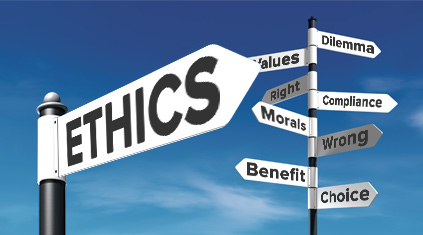Code of Ethics For Human Service Employees


Code of Ethics For Human Service Employees
Human Service Employees Meet Client Needs
Human service employees perform a variety of jobs in which they help to meet clients’ needs and improve their lives. Because of the personal nature of their work, human service workers at all levels are held to a code of ethics that protects the rights and dignity of clients and establishes standards of practice. You can find human service employees in nearly every type of organization and community. Human service professional organizations provide codes of ethics that members are encouraged to follow.
Human service employees, whose role is to assess needs and create and implement treatment or response plans, are social workers, case managers, mental health workers, and counselors. Government agencies, nonprofit organizations, and for-profit businesses employ human service workers, although some are self-employed. Human service workers focus on issues such as poverty, family services, youth development, legal assistance, and employment. They often work one-on-one with clients, although many work with special populations, including veterans, immigrants, and the elderly.
Code of Ethics
Human services organizations adopt codes of ethics that focus broadly on standards of practice that are inseparable from the behaviors and ideas that workers bring to the profession. The National Organization for Human Services crafted its Ethical Standards for Human Service Professionals to consider ethics in terms of the responsibilities human service workers have to clients, the community and society, colleagues, employers, the profession, and the workers themselves. The National Association of Social Workers approaches ethics through a core set of values, which include service, dignity and worth of the person, social justice, integrity, and competence.
The client-worker relationship is the subject of many ethical guidelines for human service workers. Codes of ethics promote respect, confidentiality, negotiation, and recognition of the client’s right to self-determination and informed consent. Workers should respect the privacy of the client, gathering only the information needed to provide services, and they should avoid intrusive actions. Ethical ideals include respect for all cultures and beliefs and for the relationships that are important in the client’s life. Codes of ethics require human service workers to respect the imbalance of power in the client-worker relationship and refrain from improper relationships, including sexual behavior and socializing, and the use of insulting language and coercion.
Ethical Standards for Human Services Workers
Ethical standards for the practice of human service work require workers to place service above self-interest. Professional ethics include integrity, following all laws, adherence to employer policies and procedures, and proper maintenance of client records and case files. Aside from direct service with clients, human service workers have an ethical responsibility to advocate for clients, social change, and community empowerment, and to protest social injustice.
Is your staff not meeting the ethical standards that your company would like to uphold? Consider working with our staffing firm. We can help find the right talent for your office. Check out our Job Search page for all available openings and reach out to get started.
<!–

